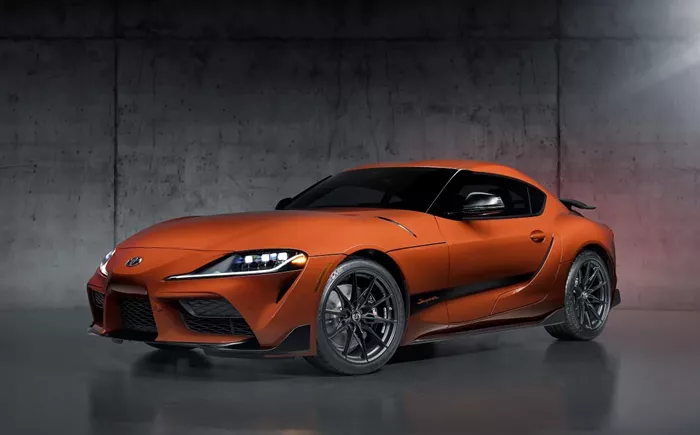Before the 2020 U.S. election, Toyota Motor and other Japanese automakers were optimistic about a second term for President Donald Trump. They hoped his administration could be beneficial, especially as he campaigned on dismantling policies aimed at speeding up the U.S. shift to electric vehicles (EVs). These were policies that Toyota, along with other manufacturers of gasoline and hybrid cars, had long opposed.
Toyota even donated $1 million to Trump’s inauguration in January, and company representatives at a dealership meeting in Dallas that month expressed strong support for the president.
However, as Trump’s policies began to take shape, much of that optimism turned into concern.
In February, the Trump administration signed an executive order imposing 25% tariffs on goods from Mexico and Canada, where Toyota and other Japanese automakers assemble many of the cars they sell in the U.S. Additionally, the administration signaled it would announce “reciprocal tariffs” on countries with large trade surpluses with the U.S., with Japan expected to be among the countries affected.
Japan is one of the world’s largest automobile exporters, and the U.S. is the biggest market for automakers like Toyota, Honda, Nissan, Mazda, and Subaru. As the tariff deadline approaches, Japan is bracing for a blow that could harm not only its automakers but also its economy. Some economists estimate that these tariffs could wipe out as much as 40% of Japan’s expected economic growth this year, as the nation already faces inflation-related struggles.
President Trump has had a contentious relationship with Japanese car companies for years. In the 1980s, he criticized Japanese automakers, claiming they were undermining U.S. manufacturers. When Trump was elected in 2016, Toyota announced plans to invest $10 billion in the U.S. Japan’s former Prime Minister Shinzo Abe, seen as a skilled negotiator with Trump, helped secure a promise from the president not to impose additional duties on Japanese cars.
This success in avoiding tariffs initially led many in the automotive industry to believe a second Trump term might be positive for them. Toyota was particularly hopeful about the possibility of rolling back policies that encouraged a faster shift to electric vehicles. While competitors rushed into EVs, Toyota held firm to its focus on hybrid vehicles, arguing that the world wasn’t ready for mass adoption of electric cars due to their high costs and the lack of charging infrastructure.
Toyota also lobbied against stricter tailpipe pollution limits introduced under President Biden, supporting politicians who opposed what it saw as “mandates” to sell more EVs. Much of this lobbying came through Toyota’s network of car dealerships, some of which conveyed concerns about a swift transition to electric vehicles to U.S. officials.
In January, Toyota’s North American leadership expressed confidence that their stance had been effective during the Biden administration and that they now had support from “like-minded politicians,” according to sources who attended the company’s dealership meeting in Texas.
However, the situation shifted when Trump proposed new tariffs on cars from Canada, Mexico, and likely Japan. These proposed tariffs have raised concerns among Japanese automakers and some U.S. dealerships. In Maine, Adam Lee, chairman of Lee Auto Malls, one of the state’s largest dealership groups, reported that February was the worst month for profits since 2009. “People don’t buy cars when the world is in chaos,” Lee said.
Analysts predict that Japan and South Korea, with their large U.S. presence and reliance on imports, are particularly vulnerable to Trump’s tariff plans. In 2022, Toyota made about one million of the 2.3 million cars it sold in the U.S. outside the country. Executives from Nissan and Honda have also warned that the proposed tariffs would significantly impact their profits.
For Japan, a 25% tariff on automobile exports to the U.S. could reduce the country’s GDP by 0.2% this year, according to estimates from Japan’s Nomura Research Institute. Given Japan’s modest potential growth rate of around 0.5%, this would represent a significant economic setback.
In response, some Japanese automakers are rushing to increase shipments to the U.S. before the April 2 deadline and preparing to ramp up production at their 24 manufacturing plants in the U.S. Over the past 70 years, Toyota has invested more than $50 billion in the U.S. and employs over 49,000 people there. A Toyota spokesperson reaffirmed the company’s commitment to continue investing in the U.S. and emphasized the philosophy of “build where you sell.”
Automaker groups in Washington are also lobbying Congress, hoping lawmakers will recognize the importance of Japanese investments in the U.S. and argue against tariffs that could raise prices for American consumers.
So far, Japanese officials have been unable to secure exemptions from the tariffs. Three people involved in the lobbying efforts, who spoke on the condition of anonymity, said they were repeatedly asked if Toyota had any new large investments to announce, but none were forthcoming.
Most Japanese automakers do not have excess production capacity in the U.S., according to Michael Robinet, vice president at S&P Global Mobility. To increase production, they would need to build new factories, a process that would take years and require significant investments. Given the current “highly unstable trade environment,” Robinet said, automakers are unlikely to make such large investments without a clear business case.
As the threat of tariffs looms, the future of Japan’s auto industry in the U.S. remains uncertain.

